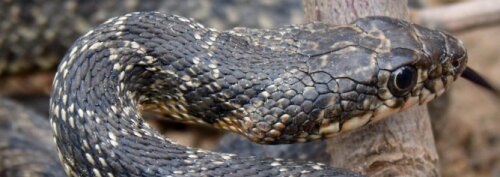Promoter: Gilles De Meester

Co-promoter: Raoul Van Damme
Subject: Invasive species are currently one of the greatest threats to global biodiversity, wrecking havoc on local ecosystems worldwide. There has been great interest in understanding which biological traits help invasive species to establish and spread through these new environments in which they did not evolve. Recent research has shown that invasions are typically driven by individuals with a particular phenotype: those characterized by high dispersal ability, boldness, activity and explorative behaviour. Another key trait that has often been suggested to increase the success of invasive species, is cognition. Through learning and problem-solving, animals should be able to quickly adjust to new environmental conditions. Nonetheless, much remains unknown about how and when exactly in the invasion process cognition plays a role.
This thesis would focus on the horseshoe whip snake (Hemmorhois hippocrepsis), a colubrid snake which has invaded and spread across the island of Ibiza since the early 2000s. Previous work has indicated clear morphological and behavioural changes in the snake throughout the invasion, but the role of cognition in its successful spread remain unknown. The goal of this thesis would be to test whether cognitive changes have occurred throughout the invasion, and whether snakes at the fast-moving invasion front are characterized by higher behavioural flexibility.
The project requires fieldwork in spring 2026, and would involve cognitive/behavioural experiments on snakes in Ibiza (Spain), as well as (possibly) the collection of neuro-anatomical data.